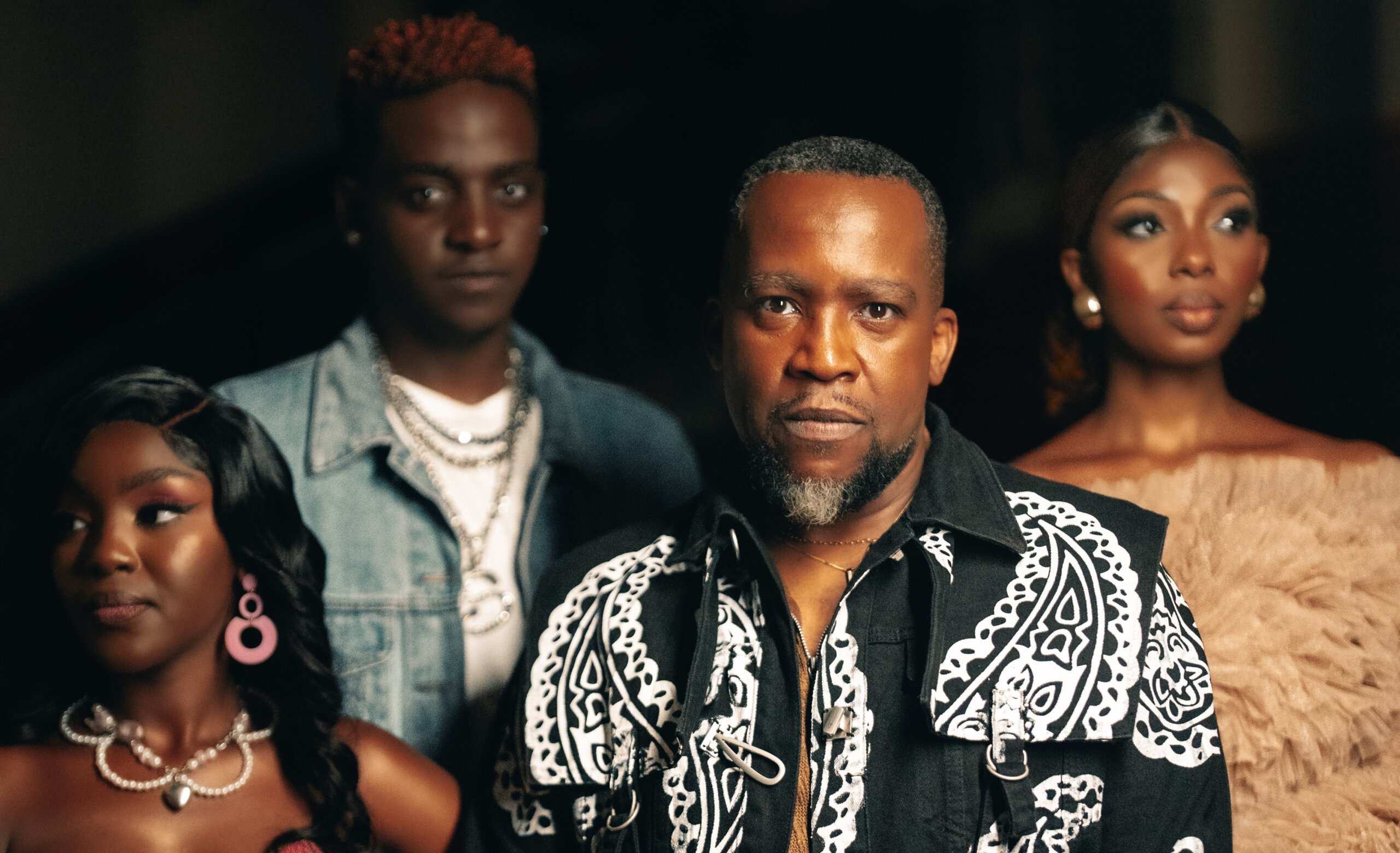Very few times, do we, us viewers, get a chance to enjoy original masterful oeuvre, may it be in the form of theatre, play or a series. To have a front row experience into the world of the mesmerising, unique, though relatable characters is what makes the whole affair euphoric. The term original is debatable when it comes to art, considering there is nothing new under the sun. Well, having this in mind, the rise of adaptations finally took centre stage.
Igiza is the first Kenyan scripted double-acted thriller series on Showmax. It is the streamers fourth original title in Kenya, building on the success of the police procedural and legal drama Crime and Justice, the coming-of-age film Baba Twins, and the drama series Single Kiasi.
A 13-part series from the director Abdi Shuria, Igiza follows the lives of identical twin sisters Nicole and Linda (played by Serah Ndanu). Episode 1 dives straight into the characters – Nicole the inmate, locked up in a level 4 prison and Linda a high-end fashion designer. It is a clash of two opposing worlds, with the only lingering question being, how will the worlds meet? The answer: Nicole breaks out and sets everything in motion.
Breaking out of prison is not an easy fete. Imagine being locked up within four walls, with horrid looking inmates throwing malicious glances at you, served unsavoury food, harassed by Senje (Eillene Otieno), the meanest guard in charge and sexually assaulted by a sleazy warden (played by Ainea Ojiambo). You’d expect that these factors should make the break out a little more thrilling and dramatic for Nicole. Instead, an anti- climactic, unrealistic and rushed sequence of events leads to an escape in a gate-away delivery truck driven by her accomplice ‘Dom’ (Blessing Lung’aho). A clear indication that throughout Igiza, suspense will be underplayed. Sadly, that is the case.
Embodying two completely separate individuals, for an actor, this role is regarded as one of the most tasking. Immersing yourself in one character and quickly shifting to the next with such a smooth transition of believability puts your acting knack to test. The story of Nicole coming back and taking over Linda’s life as a form of revenge is the centre of the Igiza. Serah Ndanu gives her best to try to make a clear difference between the two characters; unfortunately, this difference only goes as far as her switching dialect from English to sheng.

Not much else distinguishes the characters aside from the people who exist in their world. Reggie (Kevin Samuel) plays Linda’s husband, who is caught up in a web of terror, deceit, dirty money and secrecy. As the fashion house Afriqa co-managed by his wife, masquerades as a money laundering hub for a mob boss Chris (Eddie Mbugua).
Reggie represents a man whose miscalculated decisions have made the chickens to come home to roost (figuratively speaking). Although, if chickens were introduced (which they are not, thank goodness), perhaps Igiza would have had a more captivating twist, as opposed to the over the top, melodramatic, somewhat a bit overbearing tactics by the mob boss Chris, whom in the coming episodes chops fingers and other body parts as a warning to anyone who defies him.
There is a famous phrase amongst filmmakers, more so screenwriters: ‘story is king’, which means story is the core foundation. This allows both the director and actors alike, to have more creative exploration of the material. Trying so hard to make the script adapt to the target audience, you forget the characters in the story, incongruously beats the purpose. By Igiza episode 3, we absolutely have no idea, why Nicole went to jail? What revenge is she seeking out on her sister? Her relation to Dom? Who is Linda aside from just speaking good English and dressing glamorously? How clearly does Reggie play out in the larger revenge scheme?
Not to say, that there were so many instances, where this vital information would have been given. In Igiza episode 4 when Linda and Dom have a confrontation, inside the car, right outside the prison gates, Linda says, “Siezi rudi kwa hio nyumba, nita murder huyo msee” To which Dom responds, “But you owe me”. The conversation proceeds with Dom laying down facts that would have prompted Linda to feed us into a little backstory. However, she says nothing further. This constant hidden information grows annoyingly; to the extent that the emotional investment one would make to any of the characters in the series is watered-down.
Many themes have been integrated, notably sexual assault, money laundering, love triangles and a rocky marriage (Reggie and Linda are in a union for the sake of keeping up public appearance). However, the recurring one is that of greed, almost too predictably that by episode 8 nearly every supporting character highlights their level of greed. Shifting the entire series genre to an expectable pattern of a TV soap drama.
Adaptations, as earlier said, have had a growing dominance on our screens. The original stories are largely off South African shows like Gomora which we adapted to Salem, The River – Kina, The Republic – County 49, Unmarried – Single Kiasi, and lastly, our very Igiza was adapted from the hit South African show The Imposter.
The main difference between the two shows is that in The Imposter, you can tell straight right off the bat that both the actors and director really embodied the entire material. This is largely attributed by them always sticking to their dialect, a signature mark with most South African shows. Also, the fact that The imposter goes ahead to clearly show the difference between the two characters Linda and Nicole by their personalities and entire demeanour.
There are other notable difference between the two shows. Igiza creates its own world of money laundering and high-stakes in the fashion industry, The Imposter nails it with having more focus on the effect the twin sister exchange has impacted their individual lives. Allowing for viewers investment to the story, and the challenging navigations each sister has to go through as opposed to being distracted by too many moving pieces and sub-plots, which can be seen in Igiza.
There is a fine line between adaptation and translation, translation is simply changing the language without affecting the content, whereas adaptation is a creative translation method that makes the text culturally appropriate, accurate and understandable. Igiza does not translate the material, however, it tries to make the entire script more adept to the Kenyan audience, but greatly fails in making the story logical and impactful, like its original material.
We are living in a new era (Cenozoic), being an artist has become a rat race on who will come up with the best ‘new’ idea. Hence, what does that mean for creatives who cannot devise an original idea?
As Kenyan filmmakers, we have such an immense source of stories that are our very own. Not to say that incorporating outside influence is bad, as a matter-of-fact, it has challenged us to tap into new creative scenes – we finally have a female prison and money laundering show. Nevertheless, it does not mean we get too comfortable with foreign stories; we lose our confidence to tell our own. I digress.
So, what should the creatives who cannot devise an original idea do? They should steal like an artist, or to put it in the Kenyan context, they should make adaptations like true artists.
Igiza is available to stream on Showmax.
Enjoyed this article?
To receive the latest updates from Sinema Focus directly to your inbox, subscribe now.











